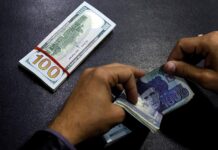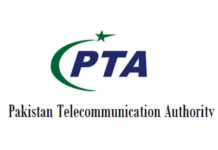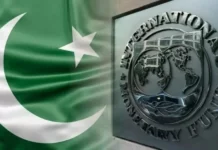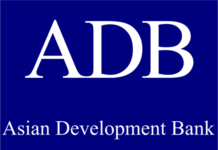Every year, a few months before the budget, the news media is flooded with stories about tobacco. On one side, there are news stories, advertisements, and opinions on the dangers of tobacco smoking. Seminars on the harmful nature of smoking followed by lavish spreads are conducted in large hotels. On the other, multinational tobacco companies also ramp up their PR drives, with top executives regularly giving interviews, and companies releasing reports and studies detailing the untapped taxation potential of a properly regulated tobacco industry.
This year, the stories started rolling in somewhere around mid-march, and continued on until June 12, the day of the finance bill being presented to the National Assembly. During the course of this period, major newspapers carried 135 news stories on tobacco related topics.
These stories are essentially of two kinds, and behind them is a vast network of lobbyists working either for the local tobacco industry or the multinational tobacco companies operating in the country.
The first ‘anti-tobacco’ sector, which quotes organisations such as the Pakistan National Heart Association to lobby for an increase in Federal Excise Duty on cigarettes, are actually the front for the local tobacco industry. They claim to be anti-smoking for health reasons, but their lobbying never mentions a ban on tobacco products, and in fact supports protections for local tobacco growers and calls for an increase in the prices of the cigarettes packs of multinational companies.
On the other hand, we have multinational companies, which include the Pakistan Tobacco Company and Philip Morris Pakistan. Their interests lie in lower taxes for themselves, as well as more taxation for local growers, who often sell in the informal economy and depend on tobacco crops grown mostly in Khyber Pakhtunkhwa. This year, their reports and statements claim Pakistan was forgoing Rs 50 billion by not curbing illicit tobacco trade.
They also suggest ‘common sense’ actions such as stricter enforcement and governance, tougher border controls, implementation of track and trace and other digital and technological solutions, destruction of confiscated contraband and imposition of penalties amongst many others – all of which would hurt local manufacturers.
This year, like many years before, the budget story had a familiar line: heavy taxes imposed on cigarettes and luxury items. These “pro-public” measures earn the government public accolades, but there is little public knowledge about the flurry of activity behind the scenes to get the “pro-public” and “anti-smoking” measure.

While this usually benefits local cigarette manufacturers, in a way, it is win-win for both groups as it is business as usual after the budget. Both groups come alive in March, with the local manufacturers using health to score points against the bigger companies, while the latter use taxation potential when the Federal Board of Revenue (FBR) starts consulting stakeholders for the pre-budget consultations. Afterwards, both sides go back to raking in money in their respective markets.
The multinationals
Pakistan is a moderate sized tobacco market where dozens of local players and two multinational players sell 80-85 billion cigarettes a year. The local tobacco manufacturers often operate under the radar, have smaller markets but there are more of them. While they make up for a significant portion of the tobacco market, ‘big tobacco’ in Pakistan is still the Pakistan Tobacco Company (PTC) – the Pakistani subsidiary of British American Tobacco – and Philip Morris Pakistan Ltd (PMPKL).
Pakistan also ranks highest in Asia in the trade of illicit cigarettes. According to some estimates, as much as 34.7% of the cigarettes sold in Pakistan are illicit and this number seems to be growing rapidly. On the other hand, the volumes of the compliant tobacco industry, the largest contributors to cigarette excise revenue continue to decline. These illicit cigarettes are all produced by local manufacturers of course, and have drawn great ire from the two big kahunas in the industry.
“Whilst most countries face the issue of illicit cigarette trade in the form of smuggled cigarettes, in Pakistan the issues are more of locally manufactured non-duty paid cigarettes,” says Sadia Dada, the spokesperson for Philip Morris Pakistan Limited (PMPKL). It is the same old story, that big tobacco companies invest in the country while the local manufacturers get away without taxation.
“Philip Morris has invested in excess of $800 million in Pakistan, however, the company continues to face challenges on the illicit tobacco trade which not only negatively impacts our business but also government revenues and the economy as a whole,” she says. Citing a study by Oxford Economics, she claims that the illicit cigarettes cause on average a loss of Rs44 billion to the national exchequer annually.
When asked what were their expectations from the finance bill 2020-21 and how much of that was met in the finance bill 2020-21, she came up with a long explanation that Philip Morris Pakistan has been advocating a level playing field for all manufacturers. “The pandemic has affected almost every aspect of life, and we understand that it is difficult for the government to effectively enforce strict action against illicit cigarette manufacturers during this time but we will continue to advocate for this,” she tells Profit.
“There is a major price differential between the tax paid compliant brands that legally cannot be less than Rs63, whereas there are cigarette brands available in the market for as low as Rs25-30,” she said. “The compliant tax paying cigarette industry faces challenges from the illicit tobacco sector, currently estimated at 34.7% of the total tobacco market. Most of these illicit tobacco manufacturers do not comply with the regulations such as advertising, promotional campaigns and some don’t even comply with the mandatory graphic health warnings required by the government on every cigarette pack.”
What do you suggest to create a balanced, reformed tobacco sector in Pakistan?
Again, the solution of these multinationals is tax stamps and a tougher stance on illegal cigarettes. While they may present these as pro-public moves, they are mostly for the benefit of PTC and PMPKL. “Illicit cigarette trade continues to grow and thrive,” said Sadia Dada. “This implies that the illicit cigarette traders are using all means possible to circumvent and undermine the enforcement efforts of the government.”
“A structured approach needs to be taken which can have sustained and definite results starting with implementation of tax stamps in the country, tougher enforcement and stricter penalties. This will not only create a level playing field for the compliant tax paying businesses in Pakistan but will also increase government revenues.”
The local manufacturers
Tobacco becomes a cash crop for 75,000 families who are tobacco growers in Khyber Pakhtunkhwa districts Swabi, Buner, Mardan, Mansehra and Charsadda. For the local cigarette manufacturers, these farmers are usually at the center of their arguments to promote their own side of the tobacco industry.
Ikram Ghani, the former Pakistan Tobacco Board chairman, said the tobacco crop is also contributing revenue in the form of Federal Tobacco Cess (FTC) and Provincial Development Cess (PDC). On average, the government collects FTC Rs270 to Rs280 million yearly and the PDC Rs400 to Rs500 million per year.

The share of the informal cigarette trade in Pakistan, one of Asia`s largest markets where 80-85bn sticks (packing comprising 10 packets) are sold annually, has risen from 34.7 percent to 50pc in the last two years. The cigarettes manufacturing industry also provides substantial revenue in the form of Federal Excise Duty (FED) besides providing livelihood to over a million people directly and indirectly.
“Unlike other agricultural produce, tobacco is receiving a step-motherly attitude and is the only crop subjected to harsh taxation in the form of provincial and Federal Tobacco Cess. The primary purpose of Federal Tobacco Cess is to increase the production quality of tobacco, and to enhance tobacco exports,” says Ghani.
The primary purpose of Provincial Development Cess is development of tobacco growing areas, plant protection and activities directed towards development of tobacco. Unfortunately, according to Ghani, these levies have never been utilised for the purpose for which they are collected.
“In the last few years the problems of tobacco growers have been further compounded by subjecting the purchase of the crop to advance Income Tax and FED, apparently in the garb of documentation of tobacco purchase and tracing the tobacco purchase to the cigarette manufacturers. Tobacco crops have certain peculiar characteristics which have to be appreciated to understand its taxation.”
“Tobacco is a bulky crop and cannot be stored like other crops. It is capital and labour intensive and the farmer has to invest huge amounts often taken as loan,” he said.
The farmer would sell the crop in haste to retire his loan and to save it from perishing. Alternatively, ,if he can afford to hold it, he has to get it thrashed through the GLT. The sale season is short and the crop has to be taken to the purchase points established by the companies for this purpose.
“Thus any advance taxes at the time of sale during the short season will probably never achieve the purpose of tracking tobacco purchase and will only increase the problems and miseries of the growers as is evident from the following historical facts,” he said.
Under section 21 of the Pakistan Tobacco Board (PTB) Ordinance the Board has the “powers to call for any returns or other information relating to the cultivation, production, manufacture, sale or purchase of tobacco by such persons or class within such time and giving such particulars as may be specified in the order”.
The contract for collection of Federal Tobacco Cess through the contractor lays down that the contractor shall maintain a list of all purchases of tobacco and furnish the same to the PTB fortnightly. But PTB has never been able to enforce these provisions as it is very difficult to record purchase of millions Kgs of tobacco by thousands of purchasers.
The Advance Income Tax conundrum
The federal government, through the Finance Act 2017, implemented collection of Advance Income Tax at 5% on purchase value of tobacco from all purchasers of tobacco. Tax under this section is to be collected by the PTB directly from purchasers declaring purchase quota and through its contractors from all other purchasers of tobacco.
This, for all intents and purposes, was to tackle the local tobacco industry, which had gotten away untaxed for a very long time. The way the levy was supposed to work was that it would track down all tobacco purchases to the cigarette manufacturers, and get them to pay this advance income tax.
This advance income tax has been collected for the last three years and is mainly collected from the companies on their declared quota which is already fully documented. However, it has totally failed to achieve the purpose of tracking down purchased tobacco to the cigarette manufacturers. But it has definitely proved a disincentive for investors in tobacco trade, thereby shrinking competition for purchase of tobacco and creating problems for the farmers.
The local cigarette industry, disguised once again under their anti-tobacco campaigners facade, have been lobbying against this tax in the media, claiming that it is being taken from the farmers in KP and has affected them disproportionately. However, the advance income tax has only indirectly affected the tobacco farmers in the sense that they are a part of the larger demand and supply model that governs all industry.
“It is generally argued that the advance taxes on tobacco will not affect the growers as these taxes are to be paid by the cigarette manufacturers and cannot be passed on to the growers. True that the advance tax cannot be passed onto the growers but such tax affects the demand and supply of tobacco,” says Ikram Ghani, explaining this point of view.
“These advance taxes push the dealers, exporters, investors and small companies out of competition for the product. There are only a few buyers in the market, mainly the two multinational and the growers are forced to sell their products to the available purchasers. Generally such a situation leads to rejection of huge quantities of tobacco as being substandard,” he said.
Once again, it is worth pointing out that the implementation of this kind of tax is what the larger tobacco companies have been gunning for over the years. This advance income tax is part of the “untapped” Rs44 billion in taxation that Philip Morris has repeatedly pointed towards. These two factions of the tobacco industry have for years been trying to tax each other out of business and influence. And this was on display both in the 2017 advance tax, and in this year’s budget.
In store in this year’s budget
In the finance bill of 2020-21, the federal government increased FED from 65% to 100%, which may trigger illicit tobacco trade. Subsequently, the FBR may lose Rs77 billion in the fiscal year, according to claims made by the Pakistan Tobacco Company’s Noor Aftab. He proposed withdrawal of additional taxes as this triggers tax evasion by the non-regulated cigarette sector.
He demanded FED on unmanufactured tobacco by Rs 500 per kg, and the rate of adjustable advance income tax, which currently stands at 5 percent by 10 percent. Their other demands include the launch of a track and trace system, and its strict implementation at retail level.
Essentially, this year was a win for the local tobacco industry. Some have pointed out that National Assembly Speaker Asad Qaiser has a soft spot for the local industry, and has lobbied for them because of his constituents that depend on income from tobacco farming. However, it is unfortunate that taxation decisions on a negative product such as cigarettes and tobacco are made as a result of the media war and lobbying of two factions within the tobacco industry.
The matter of the fact is that the tobacco sector needs to be regulated. Even Prime Minister Imran Khan has said on the record that only two [tobacco] companies pay 98 percent of total tax [tobacco collection] and the remaining 40% companies pay 2% tax”. According to Tobacco Taxes in Pakistan, “The most effective way to reduce tobacco use is to raise the price of tobacco through tax increases and ensure that the tax increases are reflected in prices. Higher prices discourage youth from initiating cigarette smoking and encourage current smokers to quit.” The FBR needs to introduce the track and trace system of tobacco products, and this hazardous product needs to be taken seriously.

























Well, the article appears to be highly biased aiming to tarnish reputation of a well known organization striving to raise awareness on harms of tobacco for more than a decade.